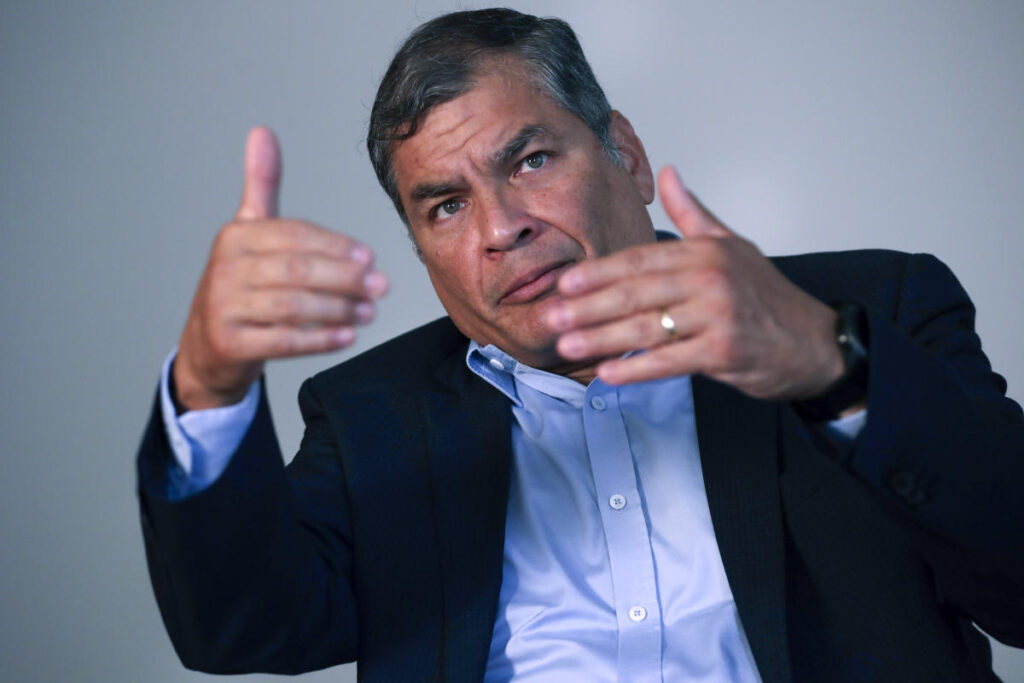On a Wednesday announcement, the Biden administration enforced visa bans against former Ecuadorian President Rafael Correa, his vice president Jorge Glas, and their immediate family members, citing corruption as the underlying reason. This decision was formally communicated by the State Department, which emphasized that both Correa and Glas were ineligible to enter the United States. The scope of these bans extended to their spouses and children, effectively isolating them from travel to the U.S. The measures reflect a particular response to concerns over corruption and highlight a broader commitment by the U.S. to encourage integrity in governance and partnerships abroad.
Rafael Correa’s presidency, which lasted from 2007 to 2017, was marked by significant political stances that often diverged from U.S. interests. He became notably recognized for his controversial decision to grant asylum to Julian Assange, the founder of WikiLeaks, in Ecuador’s London embassy when Assange was facing extradition requests from the United States. This decision not only underscored Correa’s willingness to challenge U.S. authority but also depicted a political climate in Ecuador that favored steering away from traditional U.S. influence. Following his presidency, Correa has lived in exile in Belgium, avoiding a conviction that was rendered against him in absentia due to corruption charges in Ecuador.
The charges against Correa and Glas include allegations of corruption linked to their time in office, particularly accusations that they accepted bribes in exchange for favorable government contracts. This public assertion of abuses of power highlights the perceived malfeasance associated with both leaders and raises further questions about governance in Ecuador during their administration. The Biden administration’s punitive measures serve not only as a reaction to specific individuals but also as a broader statement against corruption within Latin American governments, promoting accountability and transparency as core U.S. foreign policy priorities.
In further comments issued by State Department spokesman Matthew Miller, he expressed solidarity with the Ecuadorian people and specifically recognized the efforts of civil society members, law enforcement, and investigative journalists striving to enhance governmental transparency. This statement establishes the U.S. position as one that supports Ecuadorians who work toward exposing corruption and holding public officials accountable. Thus, the visa bans reflect a strategic move to align U.S. foreign policy with the fight against corruption, signaling a shift towards supporting democratic structures in foreign nations.
The ramifications of these bans could extend beyond the immediate isolation of Correa and Glas. They might also impact Ecuador’s political landscape, potentially encouraging a renewed focus on political accountability and government reforms. The targeted sanctions serve not only as punitive justice for past corruption but also as a deterrent for other officials who may consider engaging in similar misconduct in the future. This action by the Biden administration may pave the way for more robust international cooperation in corruption investigations, particularly given Ecuador’s historical challenges in this area.
In summary, the visa bans imposed by the Biden administration on Rafael Correa and Jorge Glas represent an intersection of U.S. foreign policy and domestic governance concerns regarding corruption. The decision reflects a commitment to uphold democratic principles and support the pursuit of transparency within Ecuador’s political system. As Ecuador continues to navigate its post-Correa political environment, the administration’s actions reaffirm a stance that encourages accountability and serves as a warning against the potential ramifications of corruption in office.

